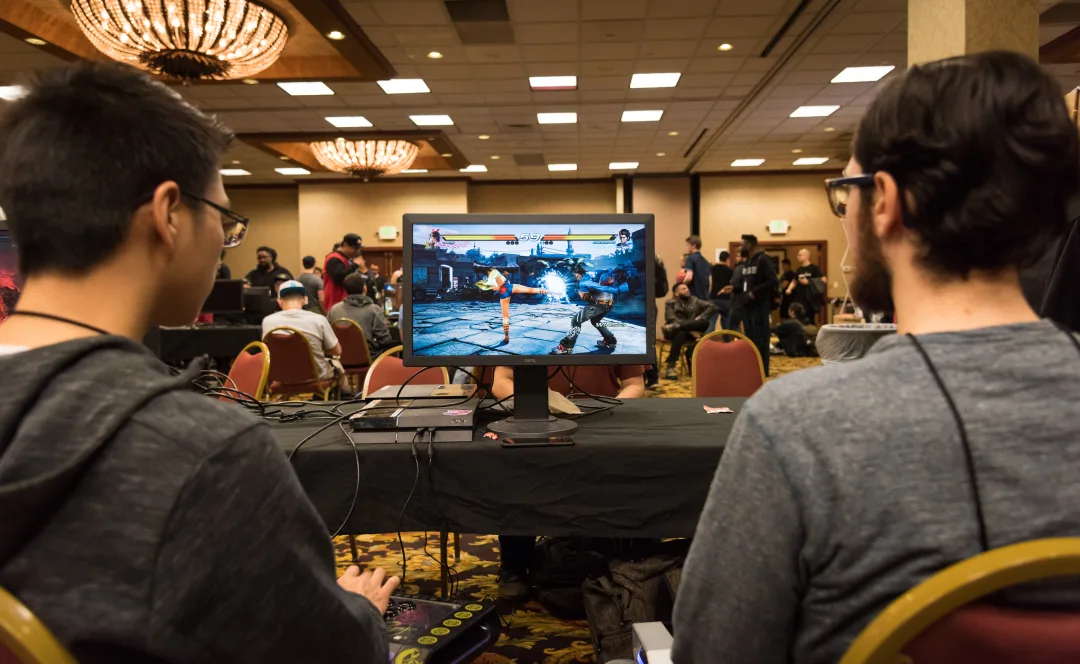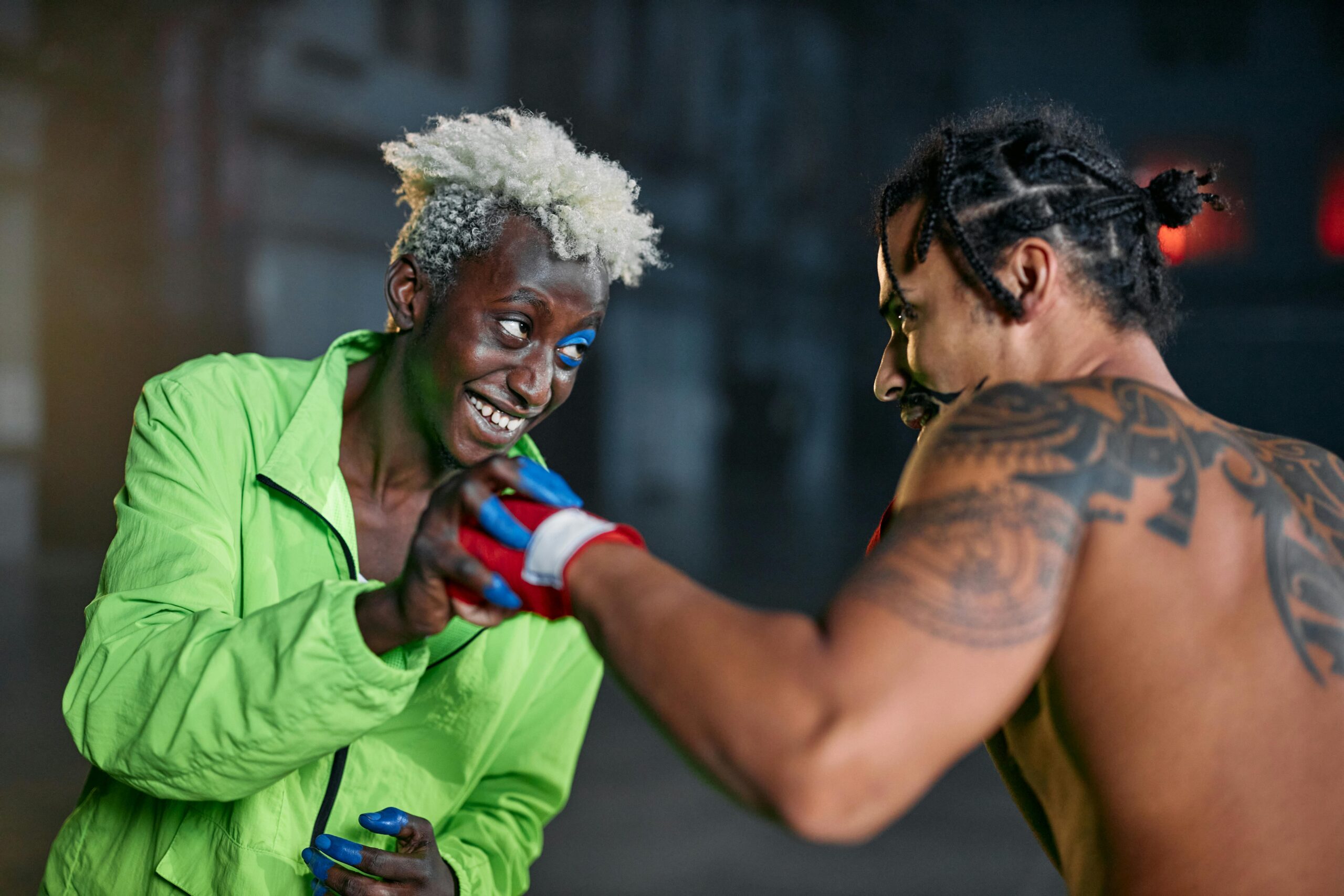Preparing for Your First Fighting Game Tournament: A Comprehensive Guide

Understanding the Tournament Scene
The world of fighting game tournaments presents a diverse landscape for both veterans and newcomers. Various types of events cater to different levels of skill and commitment, ranging from local gatherings to prestigious international championships. Understanding these formats is crucial for those seeking a guide to entering the competitive scene.
Local tournaments typically serve as the entry point for aspiring competitive players. These events are often organized by community centers, game shops, or dedicated players themselves. They provide a relaxed environment where participants can familiarize themselves with the tournament rules and formats without the pressure of high stakes. Players can expect a mix of skill levels, enabling them to learn and adapt to various playstyles. Moreover, local tournaments offer an invaluable chance to network within the community, building friendships and rivalries that may extend to larger events.
On the other hand, regional competitions elevate the competitive experience by attracting a wider pool of players. These events often have stricter regulations and may feature a double-elimination format, where players are given a second chance even after losing a match. Participating in regional tournaments helps players gauge their skills against others beyond their local scene. Such events often have cash prizes or sponsorships, further motivating players to refine their techniques.
International championships represent the pinnacle of fighting game competitions. These events draw top players from around the globe and apply rigorous rules to ensure fair play. The atmosphere is often electric, filled with spectators and professional commentary. Understanding the differences in format, rules, and player skill levels across these tournament types is key for newcomers seeking to navigate the competitive scene successfully. The journey from local arenas to global stages presents countless opportunities for growth and achievement in the world of fighting games.
Choosing the Right Game and Character
Selecting the appropriate fighting game and character is crucial for anyone looking to excel in tournaments. A thorough understanding of game mechanics is essential, as each fighting game offers unique frameworks and systems that can significantly influence gameplay. For example, some games prioritize offensive play while others may reward defensive strategies. It is important for players to familiarize themselves with these mechanics to ensure they align with their preferred playstyle.
When it comes to choosing a character, it is vital to consider both their strengths and weaknesses. Certain characters may possess powerful offensive capabilities, while others might excel in defense or offer versatile gameplay options. Players should explore the character roster and engage in practice sessions to understand each character’s fundamental skills, special moves, and combo potential. This exploration is an integral part of the journey when preparing for a competitive scene.
Another factor to consider is adaptability. In tournaments, facing different opponents with diverse styles can be challenging. Players should select characters that allow for a breadth of strategic options, promoting adaptability during matches. Characters with solid mix-up potential, reliable punish options, and effective zoning capabilities can provide an edge in unpredictable situations. As players advance in skill, they may want to consider adopting secondary characters that can counter select match-ups, further enhancing their versatility in tournaments.
Ultimately, choosing the right fighting game and character is about aligning personal preferences with effective strategies. By analyzing game mechanics, evaluating character capabilities, and honing adaptability skills, players will be better prepared to enter the competitive scene with confidence. This foundational work not only streamlines the preparation process but also enriches the overall gaming experience as one develops their unique style and approaches at tournaments.
Mastering the Basics: Training and Practice
Effective training and practice are the cornerstones of success in any fighting game, particularly when preparing to enter the competitive scene. Establishing a consistent practice routine is essential, focusing on the fundamentals that define the gameplay. Initially, players should identify core mechanics such as movement, attacking, and defensive maneuvers. By honing these basic skills, players can create a solid foundation that will serve them well in tournament settings.
Utilizing the training modes available in most fighting games allows players to practice specific skills and techniques without the pressure of a live opponent. It is beneficial to spend time in the training arena, experimenting with various combos and understanding character attributes. Players should focus on perfecting a few key moves and practicing them until they become second nature. This repetition will significantly increase overall confidence when it comes to executing these maneuvers during actual matches.
Setting achievable goals is another vital aspect of practicing effectively. Break down your training sessions into manageable tasks, such as mastering a particular combo or improving reaction time. Tracking progress through a training log can be a helpful technique, aiding players in recognizing areas that require additional focus. This method not only promotes accountability but also helps in measuring improvement over time.
Furthermore, sparring with other players is essential. Engaging in matches against opponents of varying skill levels can provide valuable insights into gameplay strategies and uncover blind spots in one’s technique. Analyzing gameplay, whether through recorded matches or live observation, offers the opportunity to learn from mistakes and make necessary adjustments. By focusing on these training principles, individuals can effectively prepare themselves for their first fighting game tournament and enhance their readiness to compete in this dynamic environment.
Mental Preparation and Tournament Mindset
Competing in a fighting game tournament can be an exhilarating yet daunting experience. Mental preparation is crucial when entering the competitive scene, as your mindset can significantly impact performance. Understanding the psychological aspects of competition is essential for success; developing a positive mindset can help mitigate the anxiety and nerves that often accompany tournament participation.
First and foremost, maintaining a positive outlook is vital. Approach the tournament with an attitude of enthusiasm rather than pressure. Recognize that each match presents an opportunity for growth, learning, and enjoyment. Reminding yourself of your achievements and the progress you have made in your gameplay can help bolster confidence. Positive affirmations and visualizing success prior to your matches can also enhance your mental state.
Managing anxiety is equally important. Many players experience nerves before their matches, leading to decreased focus and performance. One effective method to combat this is to practice deep-breathing exercises or mindfulness techniques. Taking a few moments to breathe deeply can help calm the mind and prepare you to concentrate on your strategies. Additionally, familiarizing yourself with the tournament environment through practice sessions can reduce feelings of unease.
During the matches, maintaining focus is critical. Implementing strategies such as setting specific, achievable goals for each match can keep your mind engaged. Instead of fixating solely on the outcome, concentrate on executing your skills and applying what you have practiced. It is essential to embrace the competitive spirit; rather than viewing opponents as adversaries, see them as opportunities for learning. By developing these mental strategies and embracing the competitive scene, players can enhance their experience and performance in tournaments.
Preparing Physically: Health and Conditioning
As you embark on your journey in the world of competitive gaming, preparing physically plays a crucial role in your overall performance. The importance of good health and conditioning cannot be overstated when participating in tournaments, which can be mentally and physically demanding. To maximize your potential, it is essential to adopt a well-rounded approach that includes nutrition, sleep, and a balanced lifestyle.
Nutrition is a cornerstone of physical health, and gamers should prioritize a balanced diet rich in whole foods. Incorporating lean proteins, whole grains, fruits, and vegetables can provide the necessary nutrients to support brain function and energy levels. Staying hydrated is equally important; dehydration can lead to fatigue and impaired cognitive function. Aim to drink plenty of water throughout the day, particularly before and during tournament settings to keep your performance at its peak.
In addition to nutrition, quality sleep plays a vital role in your preparation. Sleep is essential for recovery, memory consolidation, and maintaining focus. Aiming for 7-9 hours of restful sleep each night can help you stay sharp and responsive during long hours of gameplay. Establishing a regular sleep routine, including winding down before bed, can significantly improve the quality of your rest.
Engaging in exercises specifically tailored for gamers can enhance physical and mental dexterity. Activities such as hand-eye coordination drills, reflex training, and even light cardio workouts can improve your endurance for lengthy gaming sessions. Building stamina not only helps maintain concentration but also aids in reducing fatigue during tournaments. Simple activities such as stretching, ergonomic gaming setups, and regular breaks can also relieve physical strain and promote well-being.
In conclusion, preparing physically for competitive gaming involves a holistic approach focusing on nutrition, sleep, and tailored exercises. By prioritizing health and conditioning, you enhance not only your reflexes and stamina but also your overall capacity to excel in the competitive scene.
Logistics: What to Bring and Tournament Rules
Preparing for your first fighting game tournament requires careful consideration of logistics to ensure both comfort and compliance with the event’s regulations. Prior to attending the tournament, it is vital to compile a checklist of essential items to bring. First and foremost, players must pack their gaming equipment, which typically includes a console or gaming PC, a controller or arcade stick, and any necessary cables or chargers. While most tournament venues provide the gaming hardware, having a personal setup can give participants a psychological edge by using familiar tools. Additionally, it is wise to bring a headset for audio clarity during matches.
Beyond gaming equipment, participants should not overlook personal items that contribute to a successful tournament experience. Comfortable clothing and a light jacket or sweater may be necessary, as tournament venues can be unpredictable in temperature. Snacks and beverages can help keep energy levels high throughout the event. Adequate hydration is crucial, as well as maintaining focus for hours of competition. Furthermore, packing any required documentation, such as registration confirmation or identification, is critical in ensuring smooth entry into the tournament.
Equally important is the necessity of familiarizing oneself with the tournament rules and regulations. Each event may have different guidelines regarding character selection, game settings, and conduct codes. Thoroughly reviewing these rules can prevent disqualification due to misunderstandings or inadvertent rule violations. Competitors should also be aware of the tournament format, including the types of brackets used and any specific formats for match play. By being well-prepared and informed, players can focus on honing their skills and strategies, ultimately creating a more rewarding experience throughout their journey in the competitive scene.
Networking and Finding Your Community
Participating in fighting game tournaments is not solely about competition; it also serves as a platform for networking and building a community. Engaging with fellow players opens doors to shared knowledge and experiences, which are invaluable in enhancing one’s skills within the competitive scene. The atmosphere of camaraderie fosters relationships that extend beyond the tournament, establishing a support system that can assist aspiring gamers on their journey.
Joining local gaming communities, whether online or in-person, is an effective means of connecting with other fighting game enthusiasts. Platforms such as Discord, Reddit, and Facebook groups offer spaces for players to discuss strategies, share resources, and receive feedback on gameplay. These interactions can lead to friendships and mentorships, particularly valuable for newcomers who may feel intimidated. Experienced players often host workshops or casual meetups, providing opportunities for less experienced individuals to learn and grow.
Moreover, attending local tournaments or community events can significantly enrich your experience. Engaging with others at these venues not only helps players refine their techniques but also aids in developing essential soft skills such as communication and teamwork. By exchanging tips and insights, players can gain different perspectives on gameplay tactics, which is crucial for those seeking a competitive edge.
Networking in the fighting game community plays an integral role in sustaining motivation. Having a close-knit group that shares similar interests allows players to celebrate each other’s victories and provide support during challenging times. As you venture further into the competitive scene, remember that building relationships and finding your community will ultimately enhance your gaming experience, making it more enjoyable and fulfilling.
Post-Tournament Reflection: Learning from Experience
Participating in a fighting game tournament is an exhilarating experience that presents both challenges and opportunities for growth. Once the tournament concludes, players should take proper time to engage in post-tournament reflection. This analysis is a fundamental step in turning competitive gaming experiences into valuable learning opportunities. Recognizing the spectrum of emotions—from elation to disappointment—can significantly clarify the lessons learned from gameplay. Reflection helps players dissect their performance and understand how their choices in real-time influenced the outcomes of each match.
To conduct a thorough analysis, players should start by reviewing their match footage. Observing gameplay not only reveals technical errors and strategical missteps but also highlights successful maneuvers. By identifying critical moments—such as poorly timed attacks or missed opportunities for punishing opponents—players can pinpoint specific areas for improvement. Focused observation enables individuals to gain insight into their decision-making processes during intense situations, ultimately leading to more informed gameplay in future tournaments.
Identifying emotional triggers is equally important. Many players find that nerves or pressure can detrimentally affect their performance. A guide to entering the competitive scene emphasizes the significance of mental preparation in addition to technical skill. Evaluating how one felt during matches can pave the way for developing better coping strategies, thereby enhancing overall performance in subsequent tournaments. Additionally, it is beneficial to set new, realistic goals based on the reflections gathered. Whether it involves improving a specific technique or enhancing match-readiness through psychological strategies, setting these goals provides direction for training sessions moving forward.
In conclusion, embracing post-tournament reflection fosters personal and competitive growth, making it an indispensable element of participating in the fighting game community. By concentrating on lessons learned and applying them to future endeavors, players can greatly enhance their skill set and approach to competitive gaming.
Conclusion: Embracing the Competitive Journey
As we draw this guide to entering the competitive scene of fighting games to a close, it is important to reflect on the multifaceted aspects of preparing for your first tournament. Engaging in a competitive journey is not merely about winning; it also encompasses personal growth, community building, and the joys of shared experiences. Each competitor brings their unique strengths and character to the table, which adds to the diversity and vibrancy of the fighting game community.
Preparation is paramount and encompasses several key elements: mastering your chosen game mechanics, understanding the meta, developing a solid training regimen, and familiarizing yourself with tournament rules and formats. These factors are foundational for anyone eager to perform well in their first tournament, yet they should not overshadow the emotional aspect of the journey. Enjoying the process of learning and evolution in skill is vital. Remember, every participant you face is also navigating their own path of challenges and victories.
This guide provides insights into essential preparation strategies that can bolster your confidence and enhance your performance. However, it is equally important to remain adaptable and open to new experiences, as tournaments often present unexpected challenges. Building relationships with fellow players, learning from defeats, and celebrating small victories cultivate a positive mindset essential for long-term growth.
In conclusion, embracing this thrilling competitive journey will enrich not only your skill set but also your enjoyment of the game. The knowledge gained and connections formed will serve as valuable assets throughout your time in the fighting game scene. As you prepare for your tournament, remember that this experience is unique to you, blending passion and competition in a way that can shape your gaming journey for years to come.



Leave a Comment